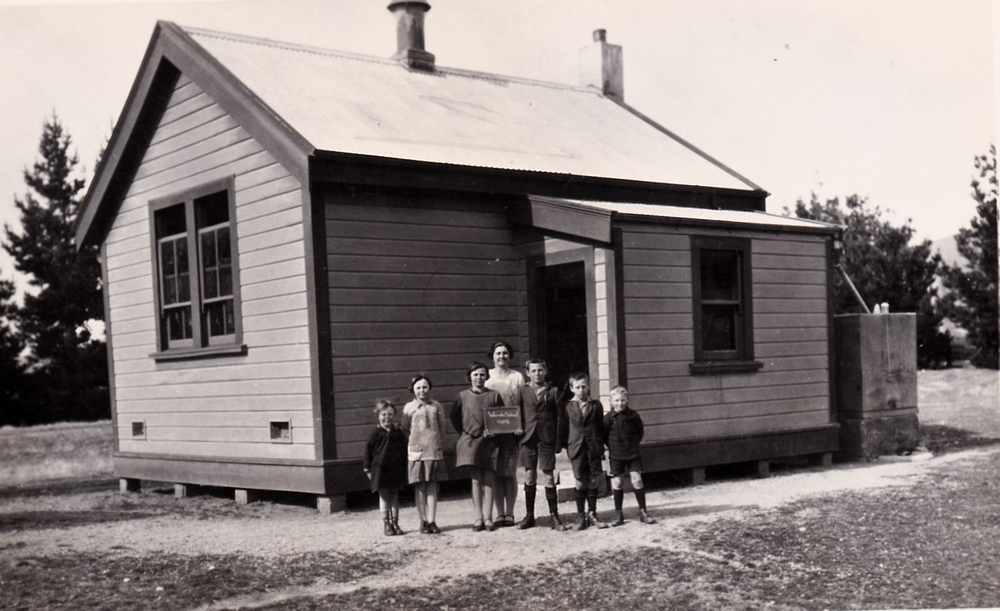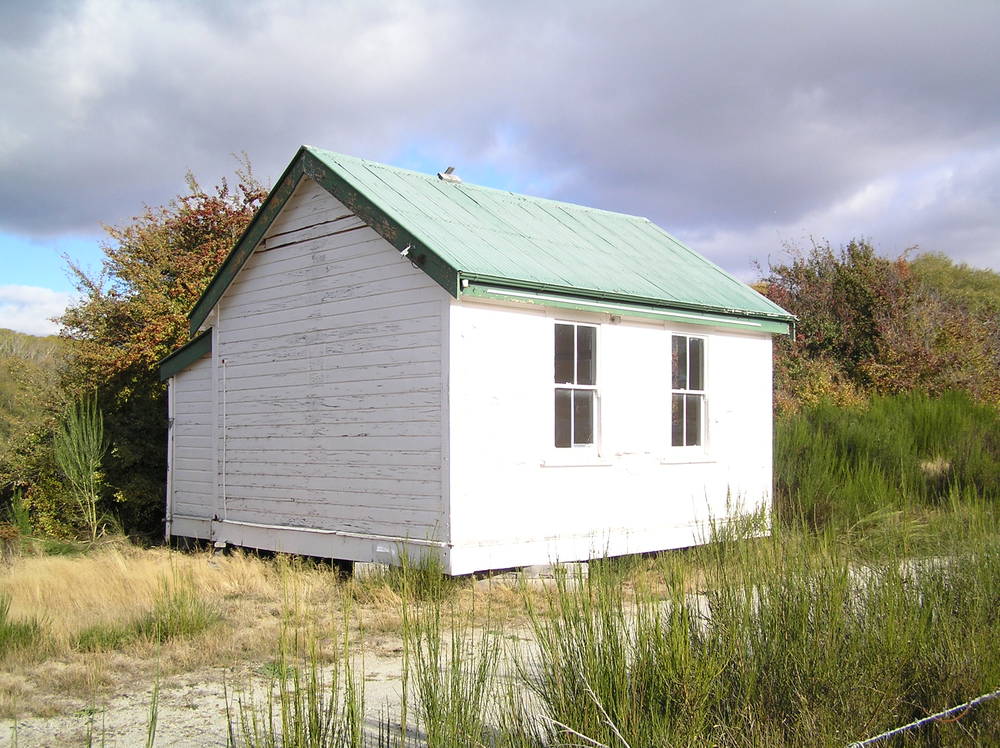Historic school celebrated in Albert Town
Diana Cocks
12 December 2022, 4:04 PM
 A plaque celebrating 75 years of education in Albert Town, from 1870-1945, was unveiled by Wānaka-Upper Clutha Community Board chair Simon Telfer and Ethel Templeton. PHOTO: Wānaka App
A plaque celebrating 75 years of education in Albert Town, from 1870-1945, was unveiled by Wānaka-Upper Clutha Community Board chair Simon Telfer and Ethel Templeton. PHOTO: Wānaka AppA plaque celebrating education in Albert Town from 1870 until 1945 was unveiled on highway road reserve near Monteith Road, Albert Town, in a ceremony yesterday (Monday December 12).
The plaque is the first in a proposed series to be erected around Albert Town which will recognise and celebrate early historic events, places and activities.
The series is an initiative of the Albert Town Community Association (ATCA), committee member Bruce Hebbard said, and ATCA plans to identify further places of historical interest around Albert Town.
The school plaque was requested by Ralph and Ethel Templeton; from 1935 Ralph attended the Wānaka Primary School in Albert Town, as did all four of his older siblings before him, including Ella Templeton, Bruce’s mother.

In 1929, the Wānaka Primary School near Monteith Road had one teacher and fewer than a dozen students. PHOTO: Templeton Family Archive
Ralph died four years ago, but Ethel was on hand yesterday to unveil the plaque with the assistance of Wānaka-Upper Clutha Community Board chair Simon Telfer.
“Ralph would have been over the moon,” Ethel said, adding that he always thought it was important that the district’s first Wānaka Primary School should be remembered.
Simon congratulated the Albert Town Community Association for its initiative, saying history is the foundation on which communities are built and “it’s important we don’t lose touch with our past”.
“I bike along here with the family quite regularly and it’ll be nice to have a reason to stop and to read and reflect.”
ATCA has agreed in principle to erect a couple of plaques each year in recognition of Albert Town’s historical importance in the early settlement of the Upper Clutha, Bruce said.
Oldest town, first school
Albert Town is the oldest town in the Upper Clutha. John Wilkin built Albert Town’s first house in 1858 (there is a plaque on a rock along Lagoon Avenue marking the site) long before William Rees first pitched his tent in Queenstown in 1860, he said.
“By then there was quite a hub in Albert Town because it was possible to cross the [Clutha] river.”
The rural school was typical of its times; a single classroom with vestibule for hanging coats and satchels; heated with a potbelly stove in the winter and swelteringly hot in the summer; and a single teacher who taught all age groups.
Albert Town was the first community in Upper Clutha to build a primary school. The original Albert Town School, built around 1868/69, was sited near the Cardrona Bridge on Templeton Road but it closed around 1876.

The primary school (photo taken around 2005) was built to be relocatable and served as a classroom in Albert Town, Hāwea Flat and Wānaka before being retired to a farm in Tarras. PHOTO: Templeton Family Archive
With more young families moving to the Upper Clutha a second school was built in Albert Town in 1886, near what is now the intersection of State Highway 6 and Monteith Road, and it was renamed Wānaka Primary School in 1888. It closed in 1902.
For a while, from 1906-1911, school classes were held in the Albert Hotel’s dining hall, until a new Wānaka Primary School was built once again on the Monteith Road site in 1911. The chairman of its committee was William Monteith, and the headmaster’s home still exists near the school’s site.
This school eventually closed in 1945 but the building remained on site in Albert Town until 1956. When the construction of the dam at Lake Hāwea attracted many families to the district, the school was relocated to the Hāwea Flat School where it was used for 10 years.
It was relocated to Wānaka in 1966 when it became an additional classroom at the Wānaka Primary School on Tenby Street. It was used for various purposes there, including a library, until it was retired to a farm near Tarras, Bruce said.





